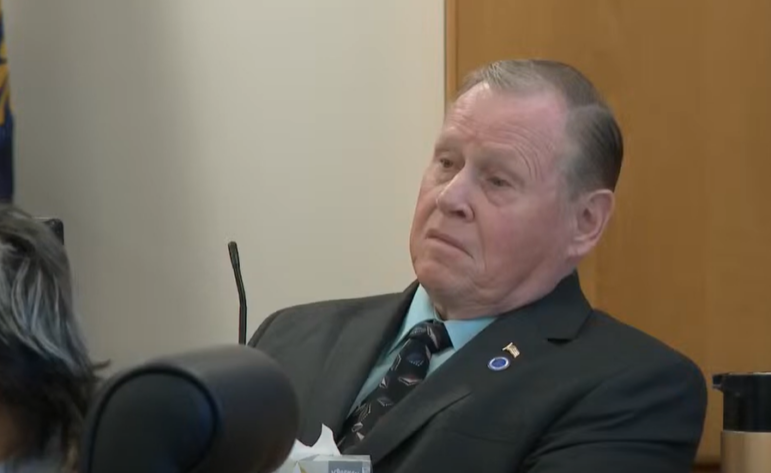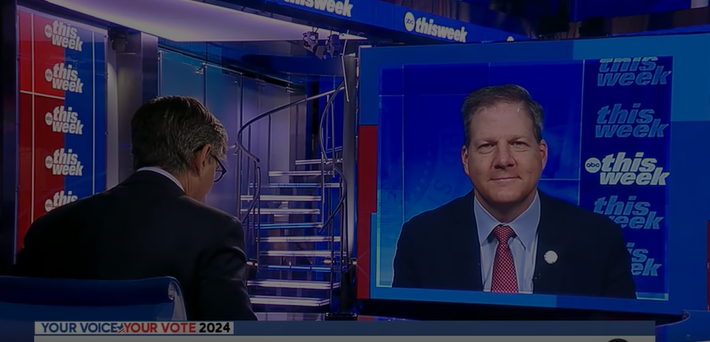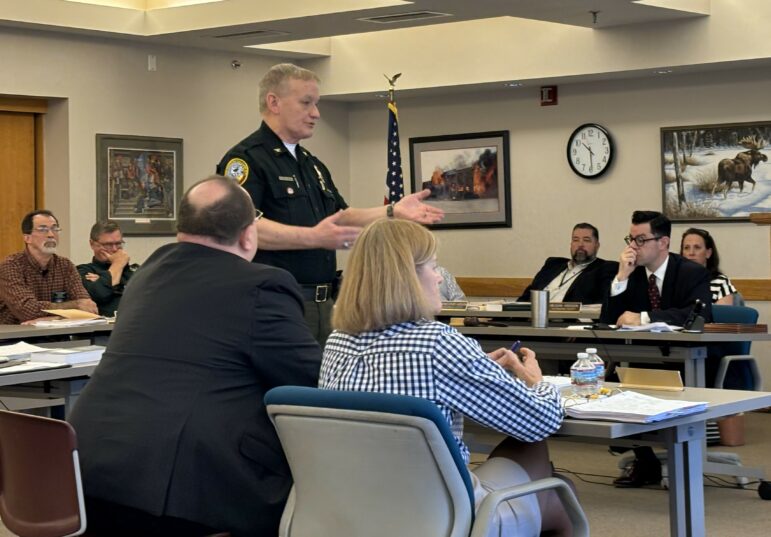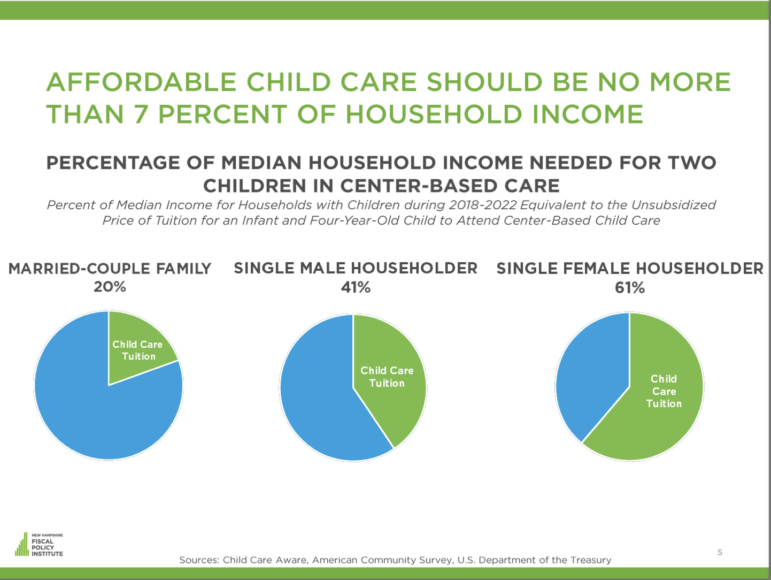
By GARRY RAYNO, InDepthNH.org’s State House bureau chief
What was inevitable after the US Supreme Court’s draft decision was leaked several months ago happened Friday and Roe versus Wade was no longer the law of the land.
Whatever your opinion on the decision, there is one thing both sides agree on going forward.
The battle over abortion will henceforth be fought at the state level unless Republicans take over Congress and the Presidency in the future and institute a nationwide ban.
States have had wiggle room on abortion rights for some time, as some like Texas and Oklahoma have all but banned the procedure.
Most states have some restrictions on abortion procedures but now the door is open to make changes both to restrict and to expand a woman’s options at the state level.
The ruling will make this fall’s election even more consequential than it was going to be.
Most political strategists prepared to make the issue central to campaigns, mostly on the Democratic side, as Republicans downplayed the issue not wanting to awaken a sleeping giant, but no more.
New Hampshire’s philosophy on abortion has evolved over time but until last year, when the 24-week prohibition was included in the budget package Gov. Chris Sununu signed, the state did not have any legal bans on the procedure.
The ban as passed did not have any exceptions for rape or incest or for fatal fetal anomalies, and it criminalized providers with felony counts if they perform the procedure after the 23rd week of pregnancy.
The original ban also included a mandatory invasive ultrasound for any abortion procedure.
This year lawmakers made two changes, clarifying the ultrasound is only for determining if a women seeking an abortion is at or near the 23rd week of pregnancy.
The other change added an exemption for fatal fetal anomalies.
Although other changes were proposed, including repealing the ban, everything else was voted down so there are still no exemptions for rape or incest and providers continue to face criminal charges.
The House passed some more far reaching restrictions on abortion the last two years, including restrictions similar to Texas’s, but the Senate either killed them or sent the bills to interim study, which is a polite death in the second year of a two-year term. The new legislature elected in November has no obligation to take up the measure next year and most don’t.
The first real change to New Hampshire’s abortion laws was a parental notification bill passed by the 2011-2012 legislature that lacked some key provisions the Supreme Court deemed essential and it was overturned.
Later a parental notification bill was approved with the key provisions and a judicial bypass if the minor could not involve her parents.
It is safe to say for the last two decades the New Hampshire legislature has had some form of abortion restriction before it every session, although most all have failed until this last term.
The possibility of overturning Roe versus Wade was one of the most significant reasons the then Democratically controlled Executive Council refused to approve state Supreme Court Chief Justice Gordon MacDonald for the post three years ago after Sununu nominated him.
The contention was his well-known anti-abortion views were a concern if the issue were left to the state’s to decide.
The Republican-controlled council this term did not have the same concerns and approved him to the court’s highest position on a partisan 4-1 vote.
How the rest of the state Supreme Court would divide on the abortion issue is not something that is well known unlike the US Supreme Court.
But the US Supreme Court’s decision is likely to make state challenges more likely and they will come.
The original court decision making Roe versus Wade the law of land was based in part on the right to privacy, that the decision to have an abortion belongs with the individual and the right to the pursuit of liberty in the 14th amendment.
Friday’s decision is based on the philosophy that if the right is not directly addressed in the original constitution it is not a constitutional right.
The right to individual privacy was recently clarified in an addition to the New Hampshire constitution.
Whether that is enough of a legal protection will probably be determined by the court in the future.
However, the legislature, as seen during this term, can have a more immediate impact on the issue.
While the issue has been more prevalent since the ban was approved, particularly for Sununu, the upcoming election will bring much more focus, and not only on the governor’s race.
With Republican politicians already calling for a national ban on abortion the issue will be central to the federal races as well.
The US Senate race will pit pro-abortion advocate incumbent Democrat Maggie Hassan against whoever the Republican nominee, all decidedly anti-abortion candidates from Senate President Chuck Morse to former Cornerstone Action executive director Kevin Smith.
Abortion is also bound to be central to the Congressional races as well as both Democratic incumbents Ann McLane Kuster in the 2nd District and Chris Pappas in the 1st are both supporters of abortion rights and most of the Republicans running to try to replace them are not.
Local races for Representative and State Senate usually do not turn on issues like abortion.
Instead it is often taxes, spending, education, roads and bridges, and other issues addressing more day-to-day concerns of state citizens.
If voters were not asking their candidates for representative nor senate where they stand on abortion rights, they certainly will be in the coming months.
A lot of people were blind-sided by the anti-abortion legislation that passed this term, but they should not in the upcoming elections.
This is new territory for most people, as many believed the constitutional right to abortion would continue to stand for years to come.
And this will be a watershed election for many reasons, abortion among them.
It will be up to another generation to determine the results of this battle, a generation that has only known life under Roe versus Wade.
A vast majority of people in this country do not want to have Roe versus Wade overturned.
This court has done that, sending a shock wave through the country’s political landscape.
This election was favoring the minority party with high inflation driven by fuel prices and supply chain issues.
Is the Supreme Court’s ruling enough to change the political atmosphere?
Time will tell, here and in Washington.
Garry Rayno may be reached at garry.rayno@yahoo.com.
Distant Dome by veteran journalist Garry Rayno explores a broader perspective on the State House and state happenings for InDepthNH.org. Over his three-decade career, Rayno covered the NH State House for the New Hampshire Union Leader and Foster’s Daily Democrat. During his career, his coverage spanned the news spectrum, from local planning, school and select boards, to national issues such as electric industry deregulation and Presidential primaries. Named by the New Hampshire Press Association to a Lifetime Achievement Award, Rayno lives with his wife Carolyn in New London.





